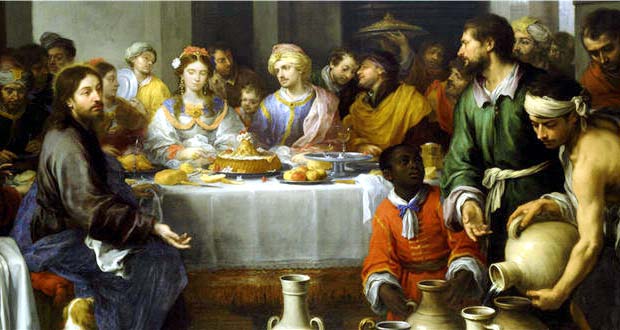In the Odyssey, Homer’s epic about the family as the center of civilization portrays two ways of life—the civilized and the barbaric.
The civilized dwell in homes, the barbaric in caves. The civilized enjoy a variety of pleasures of mind, body, and heart, the barbaric only the gluttony of eating and drinking. The civilized honor the laws of hospitality and welcome travelers; the barbaric Cyclops attack and devour their guests. Odysseus describes one moment in his journey as the epitome of civilization, the art of living well that he calls “something like perfection.” This highest of arts the ancient Greeks identified as the law of hospitality sacred to the gods.
Welcomed by the kind King Alcinous during his travels, Odysseus compliments his generous host for the beautiful human touches that gracious hospitality offers to a weary traveler: “I myself feel that there is nothing more delightful than when the festive mood reigns in a whole people’s hearts and the banqueters listen to a minstrel from their seats in the hall, while the tables before them are laden with bread and meat, and a steward carries round the wine he has drawn from the bowl and fills their cups.”
Hospitality reflects the essence of civilization and the art of living because it honors the dignity of the visitor and treats him as if he were a special guest worthy of royal treatment, perhaps even a god in disguise In Homer’s world. In the same spirit St. Paul writes about hospitality as an act of brotherly love: “Do not neglect to show hospitality to strangers, for thereby some have entertained angels unawares.”
These scenes of hospitality that Odysseus describes as “something like perfection” express the art of living by the multitude of pleasures it offers for both hosts and guests—a joy that epitomizes the sweetness of life symbolized by the goblets of mellow wine that accompany the feast. These ancient rites of hospitality provide all the amenities that a civilized life cherishes. They are special, festive occasions that remind man that he works in order to play – to enjoy the higher things of life in the form of conversation, friendship, art, music, dance, and athletics. During these celebrations of hospitality man remembers that life is more than survival and that man does not live by bread alone.
Gratitude inspires the host to pour libations to the gods and acknowledge the gifts of food and drink. Courtesy accompanies the meal as a maid brings water in a golden ewer to wash the hands. Generosity abounds as a servant brings a table laden with delicious food and platters of various carved meats in generous portions, “helping them liberally to all she had.” Beauty adorns the occasion as the food and drink are served in elegant dishware made from gold and silver. Conversation and storytelling enrich the mind and provide an opportunity of learning from the traveler’s adventures.
After being bathed and adorned with clean clothing, regaled at the banquet, and invited to a night’s rest in clean bedding, the visitor receives an audience from the host that allows him to express the feelings of his heart and communicate his joys and sorrows. In short, the art of hospitality expresses the meaning of civilization at its highest, the desire of pleasing and providing for others who are fellow human beings who share a common human nature and belong to the same human race.
The art of living welcomes occasions to entertain others and enjoy their company, conversation, and stories. It elevates life from the humdrum and prosaic to the elegant and the gracious. It cultivates an appreciation for the arts that beautify life and create mirth. It refines a person’s manners to give special thoughtfulness to the needs of others and the importance of pleasing people. Through the natural law the ancient Greeks intuited a sublime truth that Christianity taught more perfectly: Hospis venit, Christus venit. (A guest comes; Christ comes).
How do you teach your children to elevate life through hospitality?
How do you respond when your charitable acts are not appreciated or acknowledged?

 Seton Magazine Catholic Homeschool Articles, Advice & Resources
Seton Magazine Catholic Homeschool Articles, Advice & Resources
